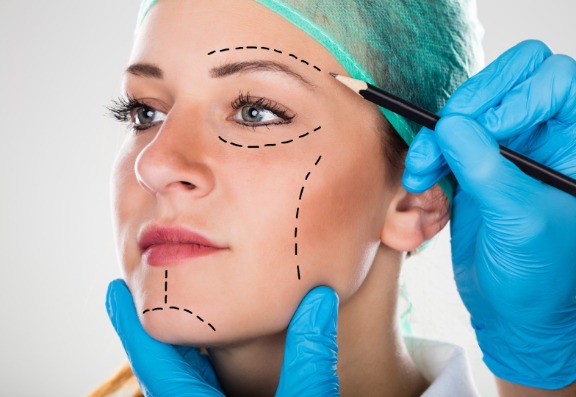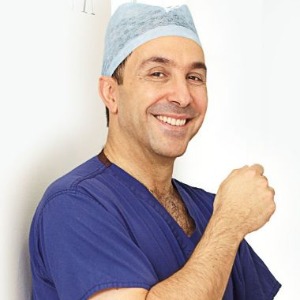We all like a good deal, to feel that we are getting value for money when we buy things. We might compare and contrast what is available and then choose the item or service that we think gives us the most satisfying option.
Inevitably, the cost of any cosmetic surgery will also play a role in the decision-making process. Nobody likes to be duped and so people usually want to do their "market research" in order to establish that they will be paying the "going market rate" for any cosmetic surgery that they may want to undertake.
The question is how easy and accurate is it to work out what the going market rate is?
Firstly it’s best to make it clear from the outset that comparing any medical procedure or surgery, is simply not as straightforward as comparing e.g. kitchen appliances or holiday packages. When you go and try to compare prices with surgery, it is likely you will not be comparing like to like or "apples to apples".
How to better understand cosmetic surgery pricing
Trying to establish the “going market rate” therefore becomes somewhat tricky.
This is because in any service sector, "services", even under the same name, can vary tremendously and be notoriously hard to compare.
How for example would you compare prices on an operation like a “facelift” where it’s possible that a whole different combination of procedure s(such as and eyelift, browlift, cheek lift, midface lift, etc) may be bundled up under the same name?

So what do you have to do to understand or make sense of the pricing?
To complicate matters further, invariably there are also many different patient situations and conditions, as well as of course different surgeons' abilities.
Can you honestly say therefore that you are in a position to differentiate and determine a surgeon's surgical ability, by understanding all the small nuances that collectively make up the differences between an ok result and a great result? It’s likely most people are probably not in a position to be able to do so.
Why is this important? Well, I think most people want the absolute best possible result with any cosmetic surgery involving their body or face and therefore want the best surgeon, not the cheapest surgeon. And please remember there is no such thing as “cheap and cheerful “ with respect to surgery.
After all, I don’t think it would be much of a consolation to say “at least I didn’t pay much for my surgery” when you’re left with a visibly unacceptable or substandard cosmetic result on your face or even your breasts!
Moreover, you simply can’t get a badly or unsatisfactorily performed operation i.e. a facelift redone or reversed easily. Improving or revising any failures of a first procedure will simply not be possible until enough loose skin has developed again- which usually takes years rather than months.
So what do you have to do to understand or make sense of the pricing?

Their prices, therefore, reflect this ability.
First I think it’s essential to take into consideration the different elements involved with any surgical procedure and understand that all these factors together that experienced top surgeons masterfully and brilliantly manipulate, to get top-quality results.
Their prices, therefore, reflect this ability.
So as you can see it can get very complicated and there are a number of issues to take into consideration even though the above list is not at all exhaustive.
Let me be clearer. For the sake of illustrating and understanding how complicated this is I’ll use a Facelift procedure as an example from here on in. You thus need to be aware of the following key technical issues, and find out:
- Do their techniques support and secure the underlying muscular structures of the face as well as can be? You don’t want to be relying on a couple of stitches to do the job i.e. like the one-stitch facelifts do you? You want your lift to last as long as possible.
- Will the skin be dissected, released and re-draped as naturally as possible, without having the windswept look?
- How do they deal with the “dead space” developing under the skin flaps during and after the operation?
- Is the handling of your tissues and preservation of your vital structures such as nerves and skin as gentle as can be thereby leading to less trauma, swelling, bruising and thus quicker recovery?
- Are the scars positioned accurately in the natural creases as much as possible away from obvious lines of vision or are they visible because of poor planning?
- Are the scars as short as can yet not compromise your final overall result in the slightest?
- Is there any distortion of the adjacent structures like the earlobes or eyelid skin?
- Do you know if the stitching of tissues and skin is without any tension, allowing the scars to heal in the best possible way and make the difference between a poor scar and a great scar?
Is the use of stitches on the skin the best it can be thereby minimising any further scarring adjacent to the scar line? - Do the surgeon and anaesthetist fully understand and manipulate the changing dynamics of blood pressure, and pulse changes favourably in the perioperative period helping to reduce excess swelling and possible bleeding thereby minimising undesirable haematomas?
- What is their experience in handling adverse reactions in the event they are unfortunate enough to develop a complication? Complications can occur in the best hands however it's how these are handled which will determine whether or not you get the best possible outcome.
- What is their follow-up care and backup like? Is it comprehensive enough in case you need advice and help? A long-established, well-organised practice usually has all these bases covered.
- Also, take into consideration where is the surgery being performed. You should always try to opt to have your surgery performed in an accredited surgical hospital facility rather than an outpatient surgery centre. I personally prefer to do all my operations in a hospital operating room where I have back up if any problems arise and you can have the comfort of an overnight stay in the hospital where required. Of course because of these extensive backup safety facilities hospital fees are usually higher than outpatient surgery centres especially if an overnight stay is included.
So as you can see it can get very complicated and there are a number of issues to take into consideration even though the above list is not at all exhaustive.
After all, you may say, they are using the same product right?
The same applies when comparing so-called "non-surgical" treatments. You may think wrinkle-reducing treatments such as Botox are the same anywhere you go.
After all, you may say, they are using the same product right? Wrong! It's how much and how you use this product that counts.
Remember you can give 3 chefs the exact same ingredients to make you a soufflé yet the result can vary enormously.
Similarly, just because 2 practices have the exact same laser or energy device doesn’t mean they will get the same results. The use of different settings and applications on these devices makes all the difference in results.

That’s not to say of course that paying a big surgical fee will guarantee you a great result
Of course from a surgeon’s perspective, it’s making one’s way around all these aforementioned issues collectively in the best possible manner that makes the difference between a barely passable or unacceptable facelift and an exquisitely performed one. And this of course is why prices can vary. A very experienced top surgeon who guides his way around all those issues with great skill in order to consistently deliver(this is an important point) great overall results knows his worth and usually prices his surgery accordingly.
Younger more inexperienced plastic surgeons, who do not have long-established practices, or surgeons who are not even specialist plastic surgeons may subsequently offer a facelift at a lower cost. It takes many years of experience to become proficient in facelifting (nay, any operation!). Conversely, it’s also true to say that some surgeons may never become totally proficient in a particular type of surgery despite “many years of experience” in the same way not all footballers will become a Lionel Messi or Cristiano Ronaldo no matter how much they play.
That’s not to say of course that paying a big surgical fee will guarantee you a great result or eliminate the possibility of complications because in medicine there is no such thing as a guarantee no matter who performs the surgery. It’s just that the very best top surgeons they are probably in a better position, as a result of more experience knowledge and refined techniques, to offer you a more favourable result.

What do you think that is worth?
A facelift is a very complex operation that can give beautiful results if done properly.
It relies largely, as do all operations, on great handiwork and knowledge on the part of the surgeon.
Imagine looking 10 years younger and no one could tell you had anything done?
What do you think that is worth?
Most people would probably agree that a fantastic facelift (or any cosmetic surgery) result is priceless
How to fully undaI don’t have enough money for the surgeon I know is the best! What do I do?erstand the pricing around cosmetic surgery
In the end, and as has probably become clear, the point I am making is that one should not use price as the sole or most important determinant when considering any cosmetic surgery; you have to think quality first and price second. But I hear you cry: I don’t have enough money for the surgeon I know is the best! What do I do? My suggestion would be to wait until you have saved up enough to go to them. Remember Cosmetic surgery is not an emergency.
You do not have to have it done right now if you don’t have the funds. You’ll only wind up regretting it if you go elsewhere and find yourself disappointed subsequently. When it comes to your face (or any part of your body for that matter) you want the best and deserve the best, so wait until you’re ready for the best!
I hope this has helped you understand the little points that make all the difference.

Author: Mr Alex Karidis
MD FRCS
Cosmetic Surgeon Mr Alex Karidis is one of the UK's most well-known and respected Cosmetic Surgeons. He has run his own private practice specialising in Cosmetic Surgery since 1997. Mr Karidis is fully registered with the United Kingdom General Medical Council and is on its Plastic Surgery Specialist Register.
Mr Alex Karidis MD FRCS was born in Montreal, Canada. His passion for the cosmetic industry coupled with hard work and dedication earned him his medical degree, NHS training and Accreditations that include the Royal College of Surgeons of Glasgow, The British Association of Plastic Surgeons (BAPS) and The Hellenic Board of Plastic Surgeons.
To view more blogs by Mr Alex Karidis please click here.
